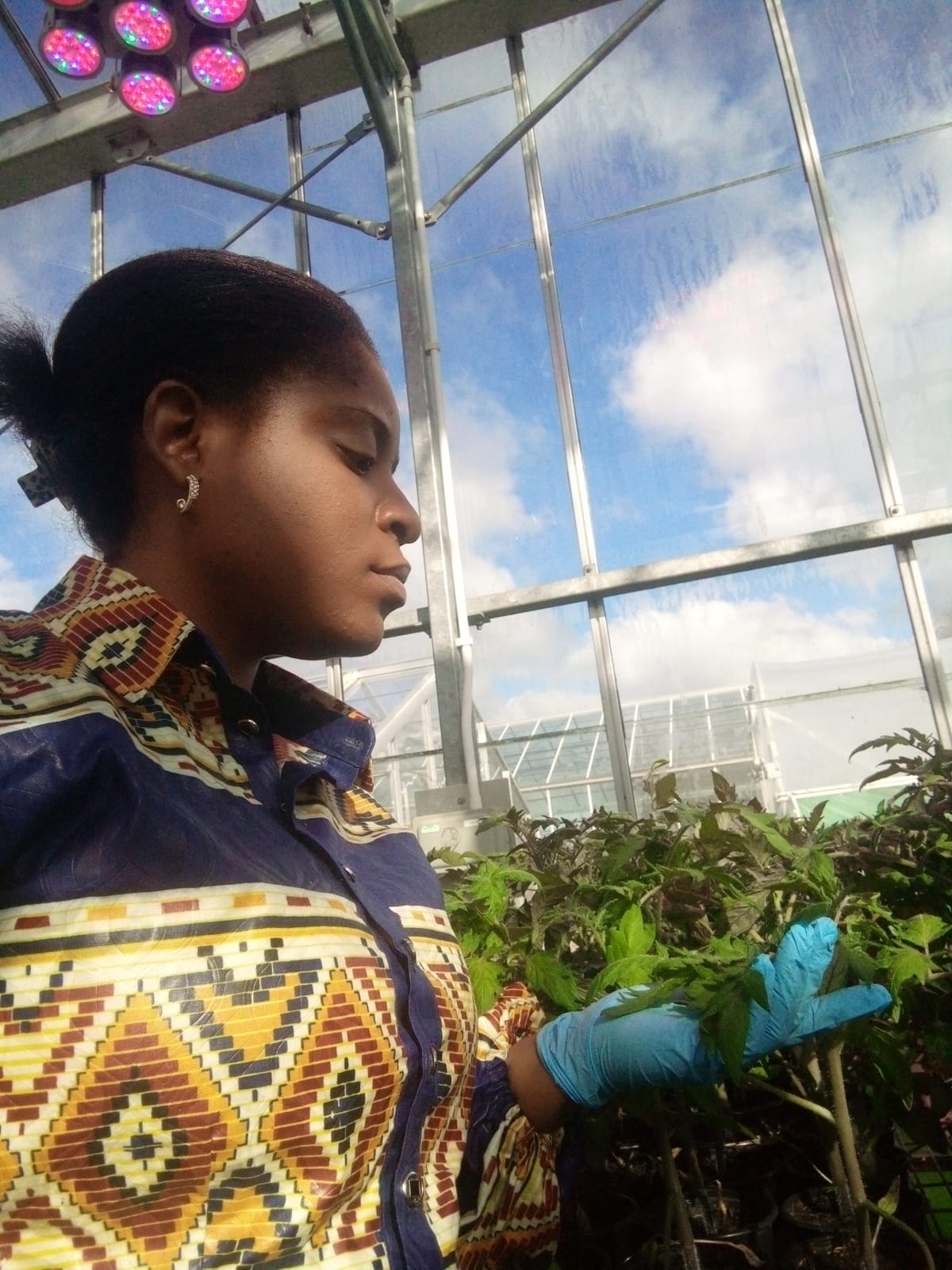Mrs Elsie Olatunji

Overview
- M.Sc. in Plant Pathology/Virology, University of Uyo, Nigeria – 2018-2023
- B.Sc. In Agriculture/Crop Science, University of Uyo, Nigeria – 2009-2016
I have always wanted to be part of the solution to food security in Nigeria and at the global level. I began a journey to study for an undergraduate degree in the Faculty of Agriculture, University of Uyo, Nigeria to become a Crop Scientist. Upon completion of my bachelor’s degree, I realized that the major challenge in agriculture/food security is not production but sustainability, and the major challenge in agricultural sustainability is plant diseases alongside climate change. I decided to study for a master’s degree in Plant Pathology/virology to investigate the incidence and distribution of yam viruses in Akwa Ibom state, Nigeria.
While studying for my MSc, I learned many ways and methods to control and manage plant diseases such as the use of chemicals, crop rotation, use of greenhouses and polytunnels, etc. However, the disadvantages of these methods are more than the advantages. The use of chemicals exposes the farmers and the environment to risk, there are no sufficient farmlands for farmers to carry out crop rotation and greenhouses are too expensive to construct in some countries like Nigeria.
Due to the disadvantages of other control measures, genetic resistance is rapidly becoming the best option and potentially the most economically viable control measure for both amateur and commercial growers as it requires no special capital investment in greenhouses, presents little or no risk to the grower’s safety or the environment (which chemicals and even some organic preparations may do). This made me consider studying for a Ph.D. degree to identify resistance alleles for breeding since in many respects, genetic resistance is the ideal option.
Research
I am currently studying for a Ph.D. degree in the School of Natural Sciences at Bangor University. I am working on a project partially funded by the Vice Chancellor Scholarship and in collaboration with Burpee, a seed company in the Netherlands. My research focuses on identifying resistance alleles for breeding against tomato early blight caused by fungal pathogens known as Alternaria species.
I intend to carry out the following activities throughout the project:
- Maintain a collection of tomato lines that contain potential sources of resistance – these include parental lines from the USA and breeding lines from Burpee (Netherlands) and negative (susceptible) controls. Plants will be grown at Henfaes under greenhouse, field, and polytunnel conditions and used in a range of screens over the three years.
- Maintain and culture isolates of Alternaria species that cause Early blight in from Europe (with appropriate licenses from Fera if necessary) for use in phenotypic disease screens on different tomato lines, and for microscopic morphological evaluation.
- Sequence a pathogenic Alternaria isolate collected in North Wales (and other UK isolates if more can be identified) and compared with sequences in the public domain (Einspanier et al., 2022)
- Use F6 RILs and parents for replicated Early blight disease screening trials with inoculation using different isolates under different conditions – field screens, polytunnel screens, and detached leaf assays
- Use linkage mapping of phenotypic scores from screens to identify quantitative trait loci for Early blight resistance.

